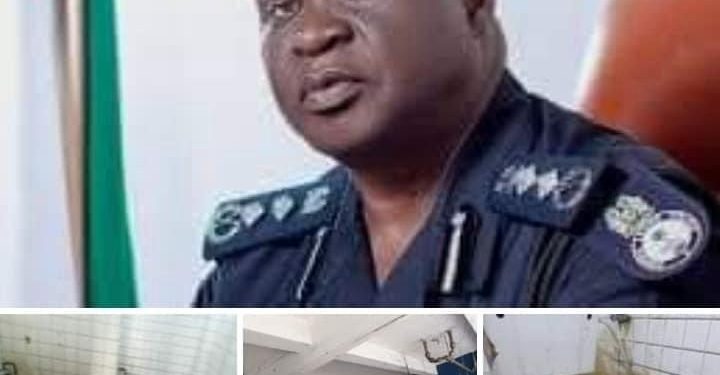By Mackie M. Jalloh
The Sierra Leone Police (SLP) is facing intense scrutiny over its handling of peacekeepers recently returned from a mission in Somalia, with accusations of severe mistreatment and neglect. Over 160 officers from Formed Police Unit 4 (FPU 4), who completed an 18-month deployment, have been detained under deplorable conditions at the SLP Headquarters car park for nearly 11 months without receiving their entitled allowances.
These officers, who arrived back in Sierra Leone in October 2023, were anticipated to be reintegrated into civilian life with due respect and support. Instead, they found themselves confined in a makeshift detention area, deprived of basic human needs and dignity. The car park, typically used for administrative purposes, has become an inhumane holding pen where officers are forced to sleep on the ground. They face severe shortages of clean water, sanitation facilities, and adequate shelter. Many of these peacekeepers are now suffering from significant health issues, including severe illnesses exacerbated by the squalid conditions.
The SLP’s failure to address these dire conditions has sparked outrage among human rights advocates and the general public. The prolonged detention without any clear justification represents a stark violation of the officers’ rights and a serious breach of justice. Their sacrifice in international peacekeeping efforts is being overshadowed by their current plight, highlighting a severe lack of respect and accountability from their own police force.
Compounding this issue, the Inspector General of Police (IG) has issued a concerning order for the arrest of a journalist who reported on the dire situation of the detained officers. This action has been interpreted as an attempt to suppress critical reporting and silence dissenting voices. The IG’s move to target journalists who expose such abuses reflects a broader pattern of hostility towards press freedom within the police force.
The SLP’s media spokesperson, Assistant Commissioner of Police (ACP) Brima Kamara, confirmed the officers’ detention but failed to provide any reasonable explanation for their confinement under such degrading conditions. The lack of transparency and accountability from the police leadership only deepens the crisis, as it prevents the public from understanding the full scope of the issue or knowing when it will be resolved.
The arrest order and ongoing threats against the media are particularly alarming, as they signal a disturbing trend towards repressing journalistic inquiry and freedom of expression. These actions are part of a larger pattern where the police force appears to prioritize maintaining a façade of order over addressing real issues and ensuring justice. The intimidation of journalists not only hinders the flow of information but also exacerbates the suffering of those affected by police misconduct.
In response to these revelations, there have been widespread calls for a thorough investigation into the SLP’s treatment of the peacekeepers and the IG’s actions against the media. The public and human rights organizations are demanding immediate action to rectify the situation for the detained officers and to protect the rights of journalists.
This scandal highlights a critical failure in the management and oversight of the SLP, revealing a troubling disregard for human rights and democratic principles. The ongoing detention of the peacekeepers and the aggressive stance against press freedom must be addressed promptly to restore justice and uphold the values of transparency and accountability.
As the nation grapples with these issues, the need for comprehensive reform within the SLP becomes increasingly urgent. Ensuring that the police force respects human rights and supports a free press is essential for maintaining public trust and fostering a just society. The treatment of these peacekeepers and the crackdown on journalists serve as stark reminders of the work that remains to be done in Sierra Leone to safeguard justice and democratic freedoms.













